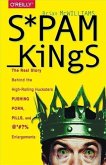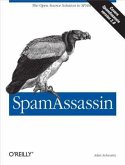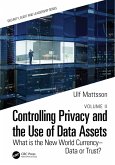Fifty years ago, in 1984, George Orwell imagined a future in which privacy was demolished by a totalitarian state that used spies, video surveillance, historical revisionism, and control over the media to maintain its power. Those who worry about personal privacy and identity--especially in this day of technologies that encroach upon these rights--still use Orwell's "e;Big Brother"e; language to discuss privacy issues. But the reality is that the age of a monolithic Big Brother is over. And yet the threats are perhaps even more likely to destroy the rights we've assumed were ours.Database Nation: The Death of Privacy in the 21st Century shows how, in these early years of the 21st century, advances in technology endanger our privacy in ways never before imagined. Direct marketers and retailers track our every purchase; surveillance cameras observe our movements; mobile phones will soon report our location to those who want to track us; government eavesdroppers listen in on private communications; misused medical records turn our bodies and our histories against us; and linked databases assemble detailed consumer profiles used to predict and influence our behavior. Privacy--the most basic of our civil rights--is in grave peril.Simson Garfinkel--journalist, entrepreneur, and international authority on computer security--has devoted his career to testing new technologies and warning about their implications. This newly revised update of the popular hardcover edition of Database Nation is his compelling account of how invasive technologies will affect our lives in the coming years. It's a timely, far-reaching, entertaining, and thought-provoking look at the serious threats to privacy facing us today. The book poses a disturbing question: how can we protect our basic rights to privacy, identity, and autonomy when technology is making invasion and control easier than ever before?Garfinkel's captivating blend of journalism, storytelling, and futurism is a call to arms. It will frighten, entertain, and ultimately convince us that we must take action now to protect our privacy and identity before it's too late.
Dieser Download kann aus rechtlichen Gründen nur mit Rechnungsadresse in A, B, BG, CY, CZ, D, DK, EW, E, FIN, F, GR, HR, H, IRL, I, LT, L, LR, M, NL, PL, P, R, S, SLO, SK ausgeliefert werden.









